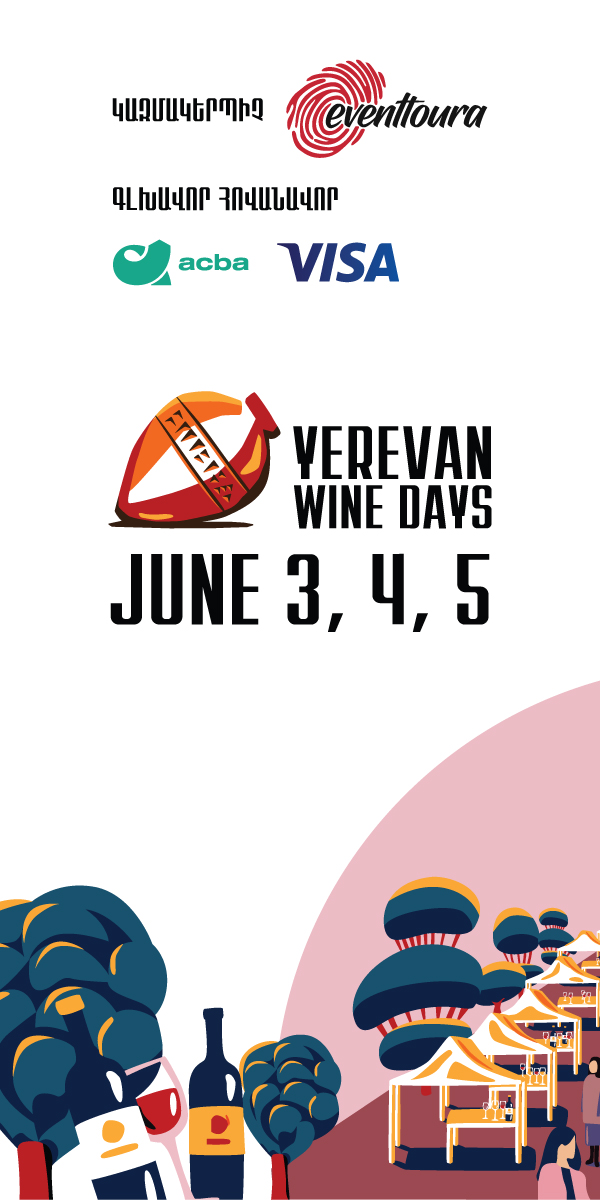Steakarar: DIY Cooking with a Green Outlook
- By Gabe Ouzounian
- Translated by
- 15 December, 2022
Steakarar, the newest restaurant from restaurateur Vahe Baloulian, opened in June of 2022 with a mission: to create a unique dining experience that’s neither high-end nor diner-style fast food. Though it's only been open for a couple of months, this eclectic hole-in-the-wall has already made a name for itself in the competitive atmosphere of Saryan Street.
What sets Baloulian’s new restaurant apart lies in the title. Steakarar, or to break it down, “Steak Kar Ararel,” points to the signature dish where the patron cooks their steak on a hot stone brought to the table.
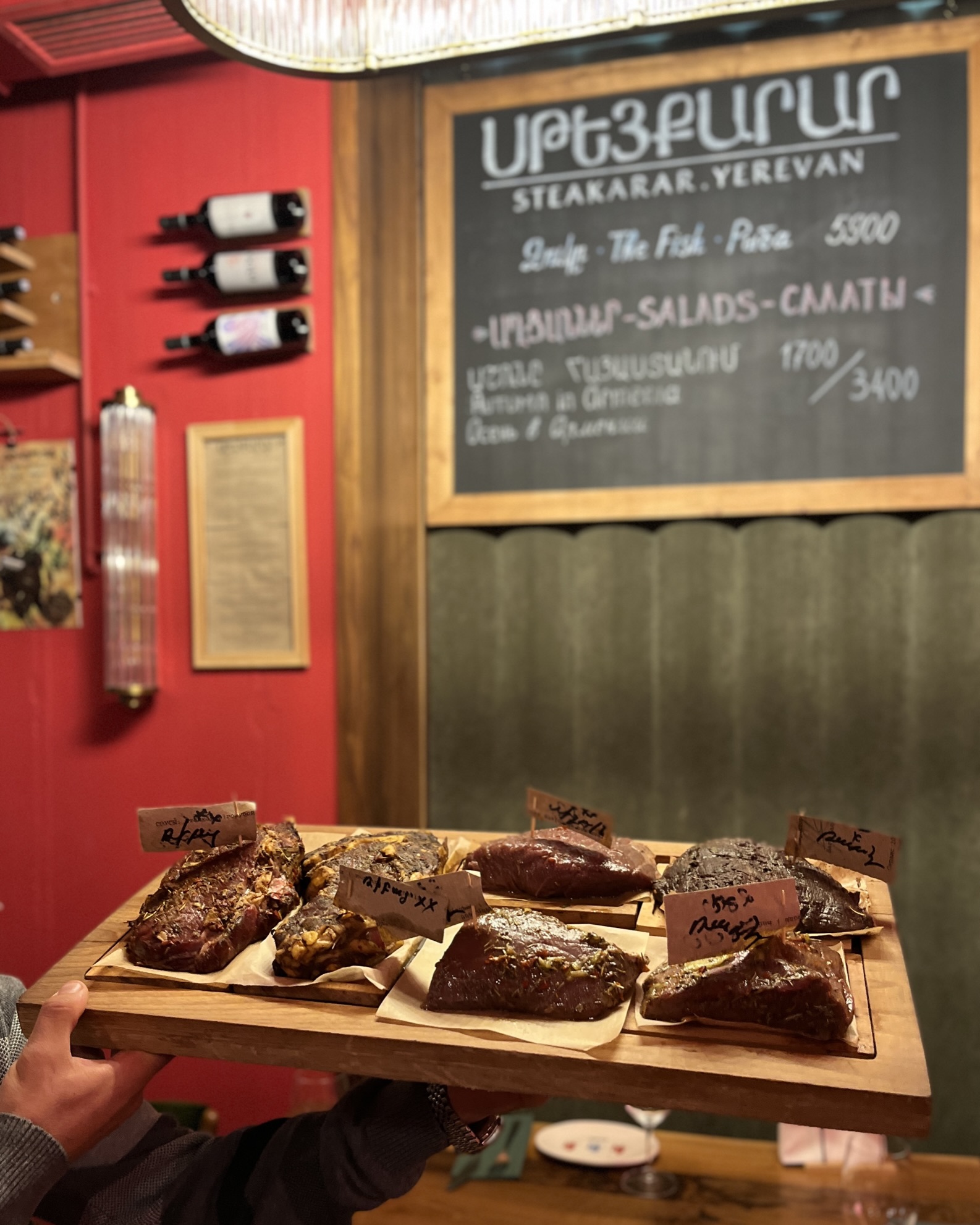
Tableside Steak Options | Photo Credit: Steakarar
“Steak stone create” was initially introduced at Baloulian’s previous restaurant, The Club. As Covid-19 led to the closure of many restaurants, the dish was removed from The Club’s menu before the restaurant finally closed. It then reopened later, but the dish, however, did not return. When Steakarar opened, Baloulian decided to bring back the dish, which he says makes the restaurant different from anything else in Yerevan.
Besides the namesake dish, the restaurant offers three regularly changing menu options that stick to the theme of Green (vegetables), Yellow (starch), or Red (protein). The menu changes seasonally relying on local products sourced from small farmers. The menu also changes daily which provides an exciting challenge for the chefs and keeps it interesting for consumers who want to return. Baloulian also remarks that this approach keeps them aligned with their zero-waste ambition.
Steakarar, on average, produces only 15 kilos of waste every month, achieved between their recycling efforts, reusing food waste at farms where animals can eat leftovers, and eschewing products that have difficult-to-reuse materials like rubber. Also, some profits go to planting forests near some of Baloulian’s land plots.
“If it’s organic food, it can go to our composts, and if it’s meat or cheese, these go to pig farms, and if it’s plastic or glass, it is getting recycled,” said Baloulian. “The only thing we don’t recycle now is stuff that the city doesn't have facilities for yet. But [Yerevan] is introducing things little by little that can take metal and rubber. You see all the trash that goes uncollected and the black bags full of unused food, so my partner and I discussed it and decided this is something we would like to do.”
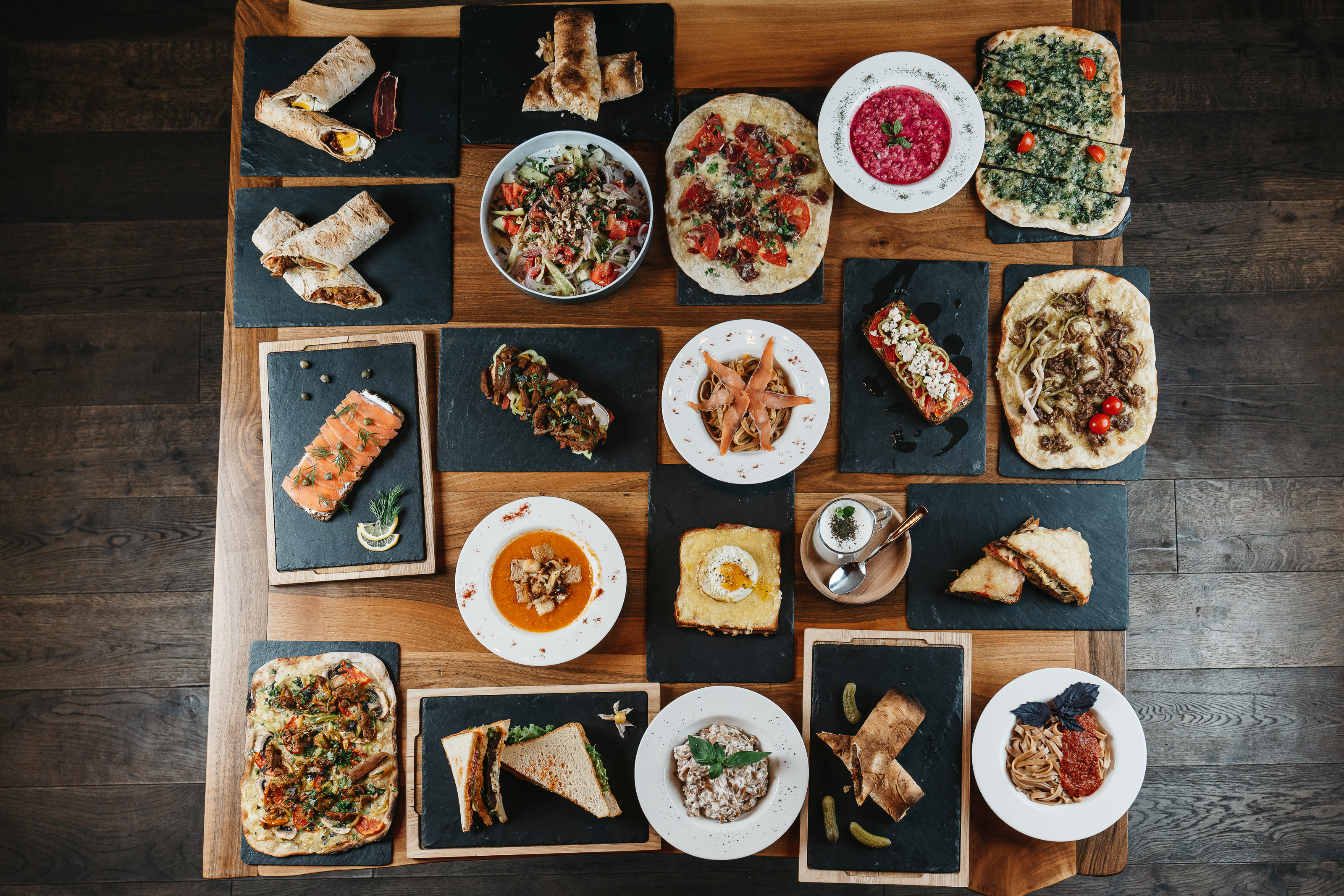 Steakarar Lunch Menu | Photo Credit: Steakarar
Steakarar Lunch Menu | Photo Credit: Steakarar
Finally, more than 95 percent of Steakarar’s ingredients are locally sourced. Baloulian said he initially got complaints that the steak served was not marbled or not sourced from traditionally famous steak-growing areas like Argentina or Russia. However, many are pleasantly surprised by the uniqueness and overall quality. The same goes for local yet not much-used Armenian vegetables, such as the Armenian cucumber, lemon cucumber, or watermelon radishes.
More than anything, Baloulian said he's excited about the farm-to-table food culture taking hold, and Steakarar represents that passion. In addition, as new restaurants open in Yerevan to fill the void left by post-Soviet volume-over-quality cuisine, several restaurants represent an introduction to certain culinary aspects. He mentions In Vino, a trailblazing wine bar in Yerevan that has introduced a wine-drinking culture in the city that has furthered the conversation of fine wine and Armenian wine among the masses.
“If In Vino was a tool to introduce wine culture here, then Steakarar is a tool to introduce food culture, zero waste, and climate neutrality,” he said. “These places are usually vegetarian-focused, but we’re not discriminating against vegetarians or meat lovers. We have both and we think that it doesn't matter what you use, but how you use it.”
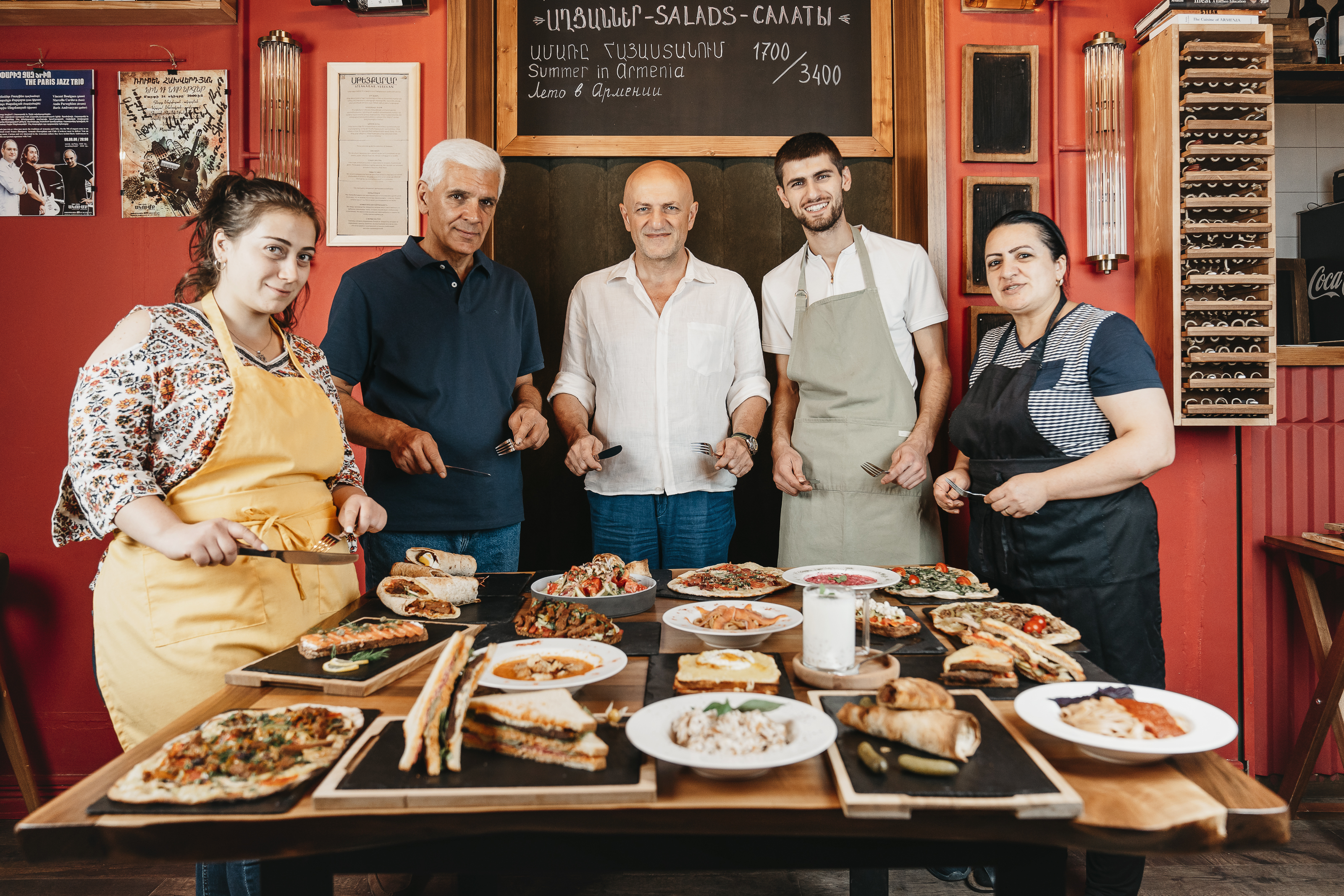 Staff at Steakarar | Photo Credit: Steakarar
Staff at Steakarar | Photo Credit: Steakarar
Not ignoring the wine conversation, Steakarar’s wine list features reds, whites, and rosés from Armenia’s Vayots Dzor region and selections from Navarra, Rioja, and Bordeaux. Most selections share a connection to Trinity Canyon Vineyards, which Baloulian co-founded. But the restaurant’s proximity to In Vino, also co-founded by Baloulian, allows consumers to explore there for more wine pairing options.
“Since I co-founded Trinity Canyon Vineyards, our wine list features wines connected to Trinity in some way,” he said. “We also offer labels from our friends in Spain and France that pair well with the food we serve. However, we allow guests to bring in any wine for a small 3,000-dram corking fee. Being next door to In Vino makes it easy for our guests.”
Baloulian was born in Armenia but spent many years abroad, traveling for a consultancy job. He draws from this experience to create exciting new takes on restaurants and cuisine.
Steakarar is located at 6 Martiros Saryan St in Yerevan, and can be reached at 093159506 or on Instagram @steakarar.
-
21 December, 2022
-
30 November, 2022
-
26 August, 2022
-
11 August, 2022
Similar Stories
-
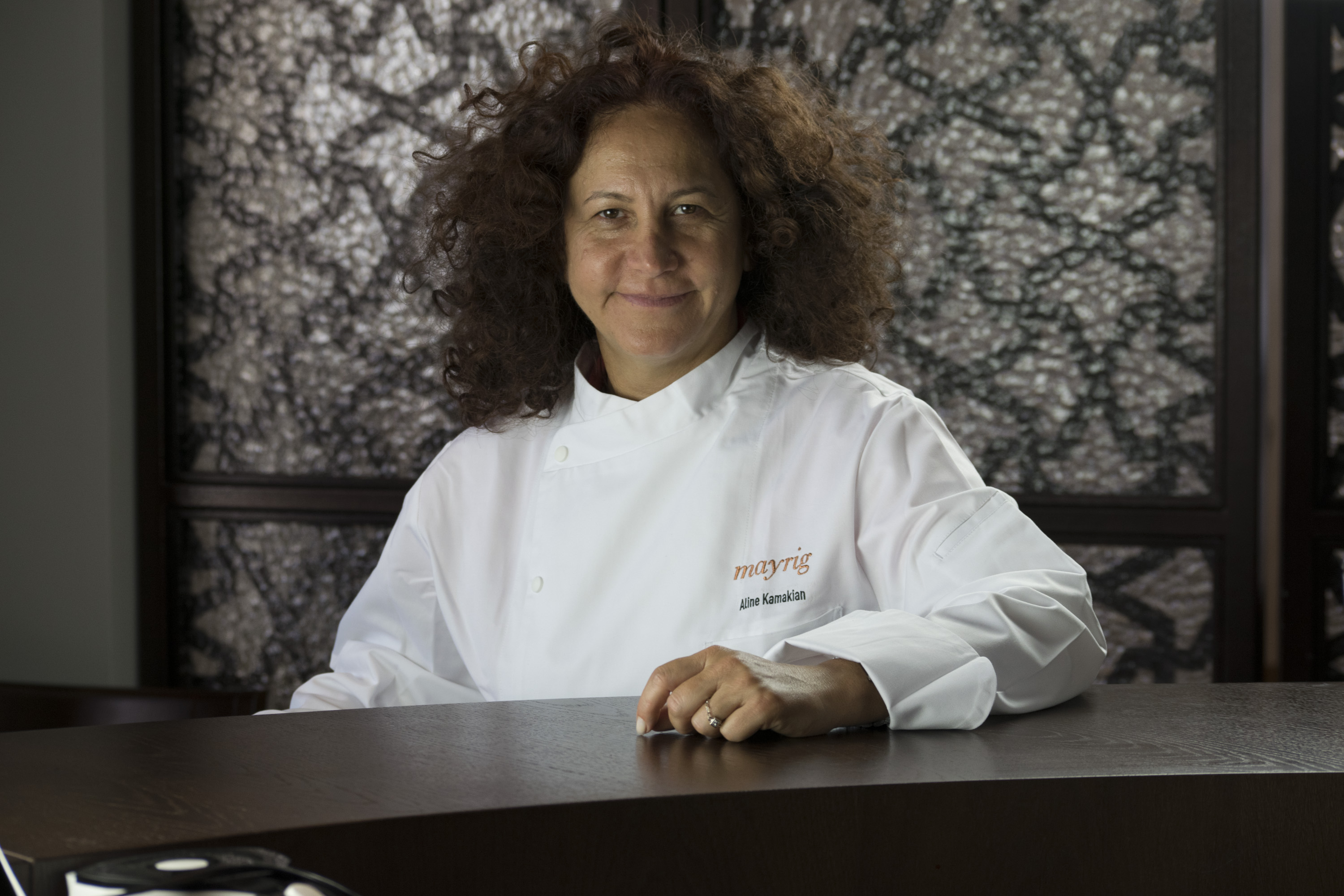 21 April, 2022The last 20 years have been busy for the Lebanese-Armenian female entrepreneur. She was born to genocide survivors from Tomarza and the Musa Dagh regions in Turkey who fled the Ottoman massacres to Beirut in Lebanon. The story of Mayrig began in 2003 when Aline Kamakian bought a dilapidated building in Beirut, Lebanon.
21 April, 2022The last 20 years have been busy for the Lebanese-Armenian female entrepreneur. She was born to genocide survivors from Tomarza and the Musa Dagh regions in Turkey who fled the Ottoman massacres to Beirut in Lebanon. The story of Mayrig began in 2003 when Aline Kamakian bought a dilapidated building in Beirut, Lebanon. -
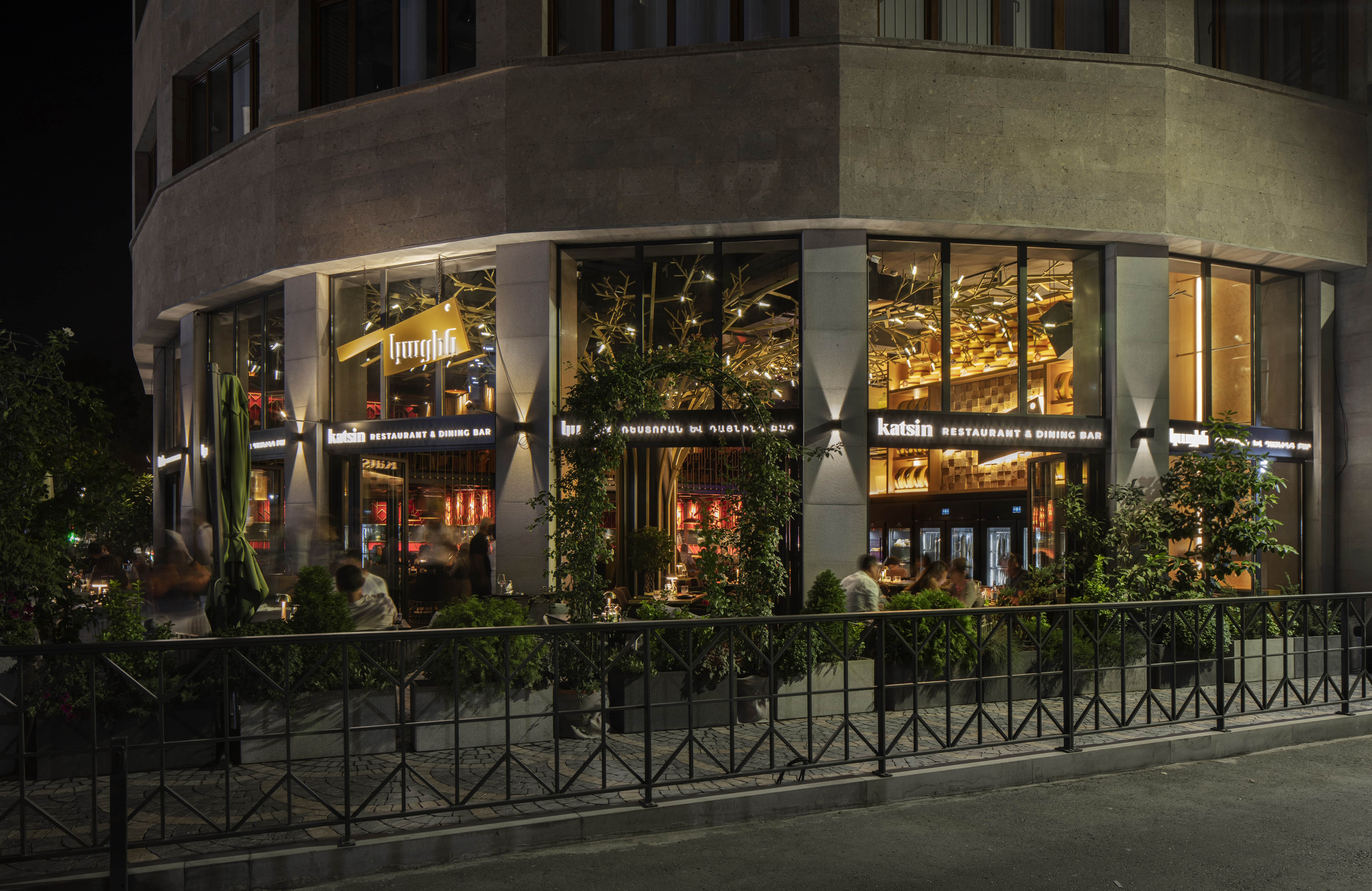 21 April, 2022On September 19th, 2020, a new restaurant opened its doors to customers in Yerevan. Katsin is unlike anything Yerevan has seen based on its size, comfort, menu, and service. Brothers Mher and Gevorg Adamyan conceived the concept, and by owning other cafés and restaurants around the city, have become leaders in the Armenian food scene.
21 April, 2022On September 19th, 2020, a new restaurant opened its doors to customers in Yerevan. Katsin is unlike anything Yerevan has seen based on its size, comfort, menu, and service. Brothers Mher and Gevorg Adamyan conceived the concept, and by owning other cafés and restaurants around the city, have become leaders in the Armenian food scene.


